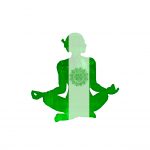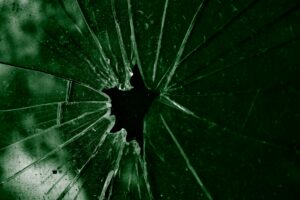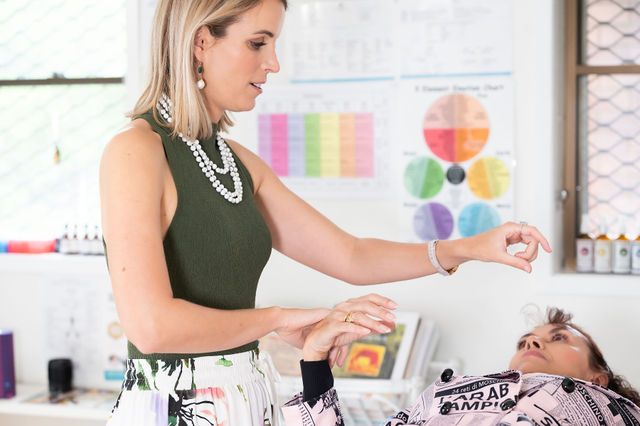
We are all born with the basic right to love, and to be loved. This blog post addresses the fourth energetic centre, the Heart Chakra, also known as the middle chakra as it mediates the physical lower chakras with the spiritual higher chakras. A balanced heart chakra determines our overall health, vitality and strength.
As the name suggests, the physical location is found at the chest, over the heart – no doubt you’ve felt this energy as your heart bursting with love, or with the pain of heart ache and loss.
The Heart Chakra resonates with our emotional perceptions, which determine the quality of our lives far more than our mental perceptions. This energy centre helps to propel our emotional development, and teaches us how to act out of love and compassion, and to recognise the most powerful energy we have is love. More than any other chakra, the heart represents our capacity to “let go and let God” in order to find inner peace. The passive yin energy allows ourselves to simply let things be the way that they are. It encourages us to expand beyond our limited egos into a wider sense of connection with all of life; to rise above the confines of our own needs, and to find joy in service and altruism.

The Heart Chakra does not just address the matter of becoming connected, it is a matter of seeing that we are already deeply connected. Rather than seeing ourselves as alone, we can see that we are in fact “all-one”.
Love is the energy that keeps a family together and relationships in tact. This mysterious force is full of paradox; we fall in love, we are lifted by love, we are bound by love. It requires both closeness and distance in order to find balance and equilibrium.
People who have an underdeveloped heart chakra see love as conditional, they can become critical, negative, isolated, and can become submissive in love which simultaneously resists closeness. They may also require approval from others and have feelings of not deserving or not fitting in.
Excessive love may sound counterintuitive, but an excess can occur when we overcompensate for our own wounds. This is desperate in its need for constant assurance. Consider the scenario of a friend who complains to you that they have put on weight over the weekend after spending it with their parents; they are usually very health conscious, but felt they had no choice in eating things they wouldn’t normally choose to. Turns out their mother’s way of showing love is with food, so she over-feeds the child even though they are not hungry, and sulks when the child says no; the child eats so not to hurt the mother’s feelings. The result is that child feels smothered and does not look forward to the next visit. Both the parent and child have acted codependently, and the emphasis on love for the other is out of balance.

In Hindu the name “Anahata” has been given, which translates to “unstruck”. It relates to the detachment required to look at different and apparently contradictory experiences of life. The element associated with the heart chakra is “air”.
Strengths of the Heart Chakra
- love
- forgiveness
- compassion
- dedication
- hope
- trust
- the ability to heal oneself and others
Weaknesses of the Heart Chakra
 jealousy
jealousy- bitterness
- anger
- hatred
- inability to forgive (others as well as self)
Fears of the Heart Chakra
- being alone (lonely)
- rejection
- commitment
- following one’s heart
- the inability to protect oneself emotionally
- emotional weakness and betrayal
Sacred Truth of the Heart Chakra | "Love is Divine Power"
Whilst mental energy is generally considered to be superior in our modern, fast-paced, consumerist society, it is actually emotional energy that truly motivates our body and spirit.
Love in its purest form – unconditional love – is that of the divine. We are as much attracted to the power of love as we are intimidated by it. We are motivated by love, inspired by love, controlled by love, healed by love, and destroyed by love.
Love is the fuel of our bodies, and each of life’s challenges are a lesson in some aspect of love.
Physical Aspects of the Heart Chakra
Blocking this energy can give rise to heart issues, asthma, lung issues, breast issues, upper back and shoulder issues.
Exploring your Heart Chakra
Emotionally, Mentally and Spiritually, questions you may like to journal about include:
 “What emotional memories do I have that require healing?”
“What emotional memories do I have that require healing?”- “What is my understanding of forgiveness?”
- “Are there people in my life that I have not forgiven?” If yes, what is holding you back from letting go of the pain associated with them?
- “What have I done that requires the forgiveness of myself, and from others?”
- “Do I use emotional wounds to control people or situations?” If yes, what are they?
- “Have I been controlled by the wounds of another?” If yes, how can I prevent myself from being controlled in that way again?
- “What fears do I have about becoming emotionally healthy?”
- “Do I associate emotional health with no longer needing an intimate relationship?”
Exercises for your Heart Chakra
There are many ways that you can focus on and support your heart chakra.
 Arm circles
Arm circles- Yoga chest opening poses such as fish and cobra
- Alternate nostril breathing
- Journaling for self-discovery
- Chant the mantra “Lam” to create sound vibration in the body to harmonise with the heart chakra
- Meditate on the sacred message “Love is Divine Power”
How we can help
We can use Kinesiology to access your subconscious and explore energetic aspects related to your heart chakra. Together we will find out what your body most needs to support its own self-healing process.
Kinesiology can be utilised in person or virtually.
Please feel free to contact me if you have any questions, or book in for a consultation when you feel ready to.
Yours in Health,
Sarah Claiden

REFERENCES
Anatomy of Spirit, Caroline Myss, PhD, 1996
Working with your Chakras, Ruth White, 1993
Wheels of Life, 2nd Ed, Anodea Judith, PhD, 2015
Eastern Body, Western Mind, Revised 2nd Ed, Anodea Judith, PhD, 2004


